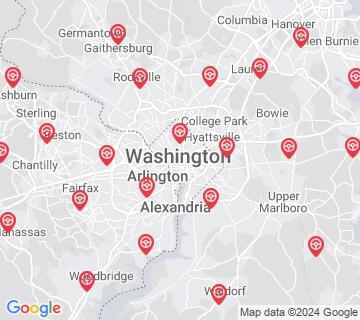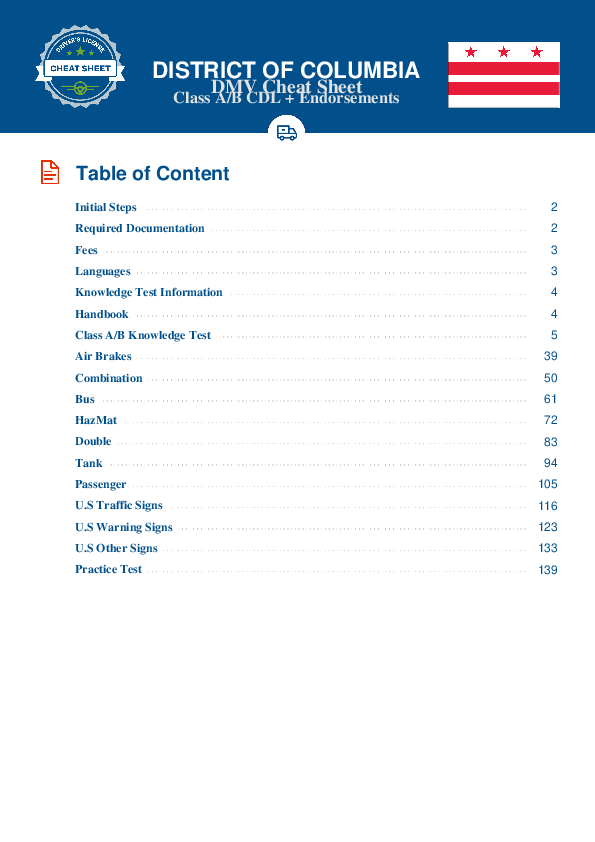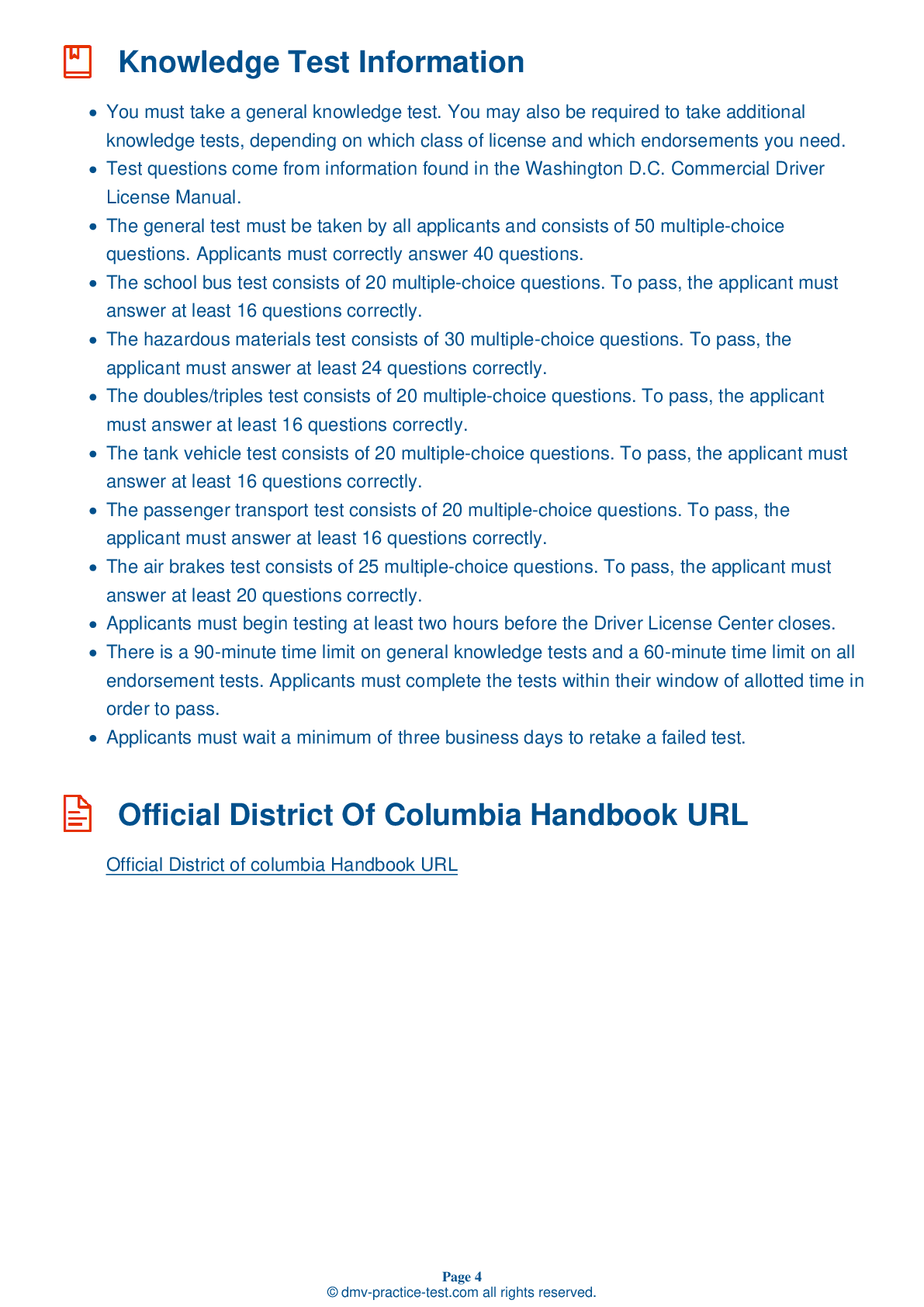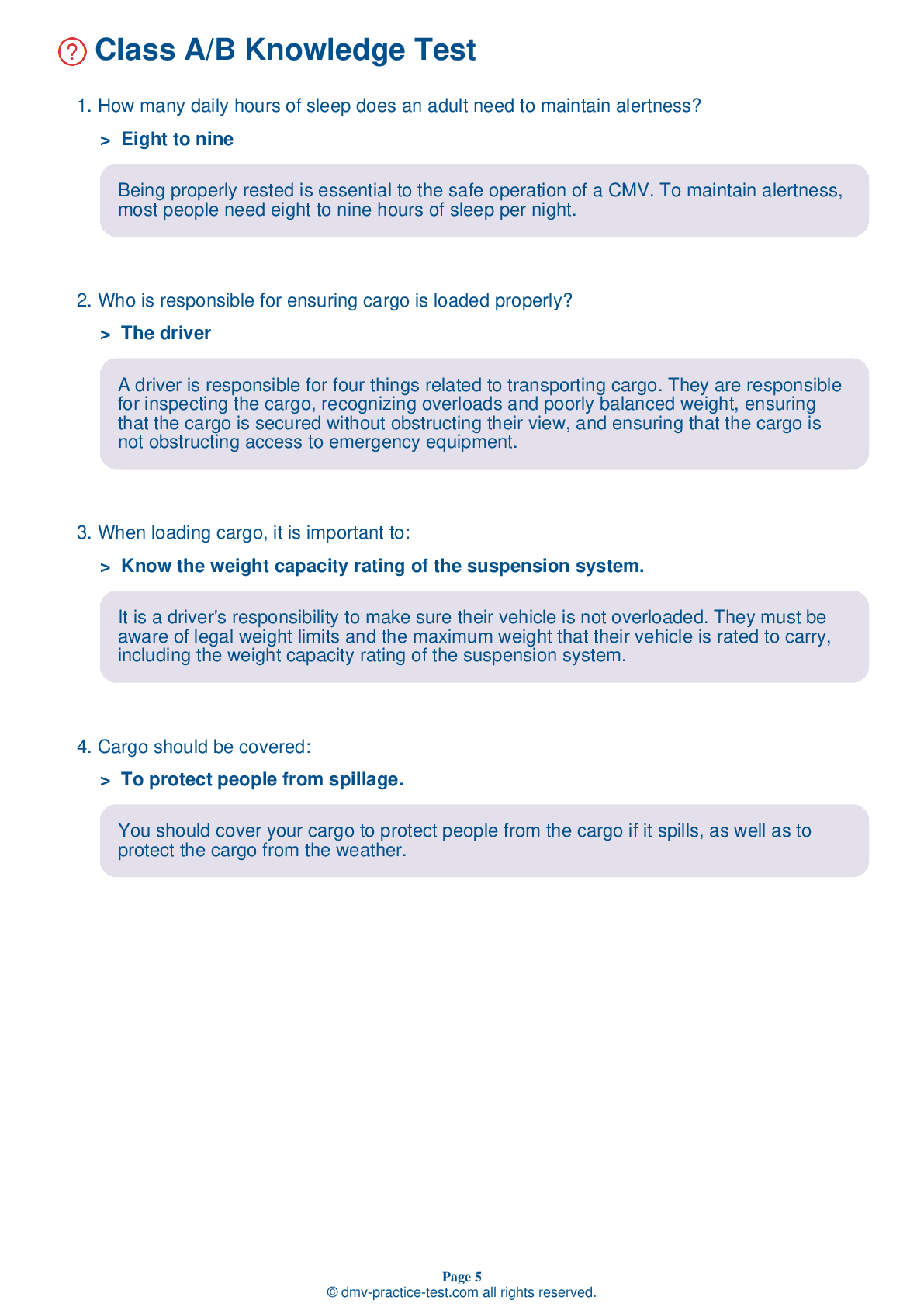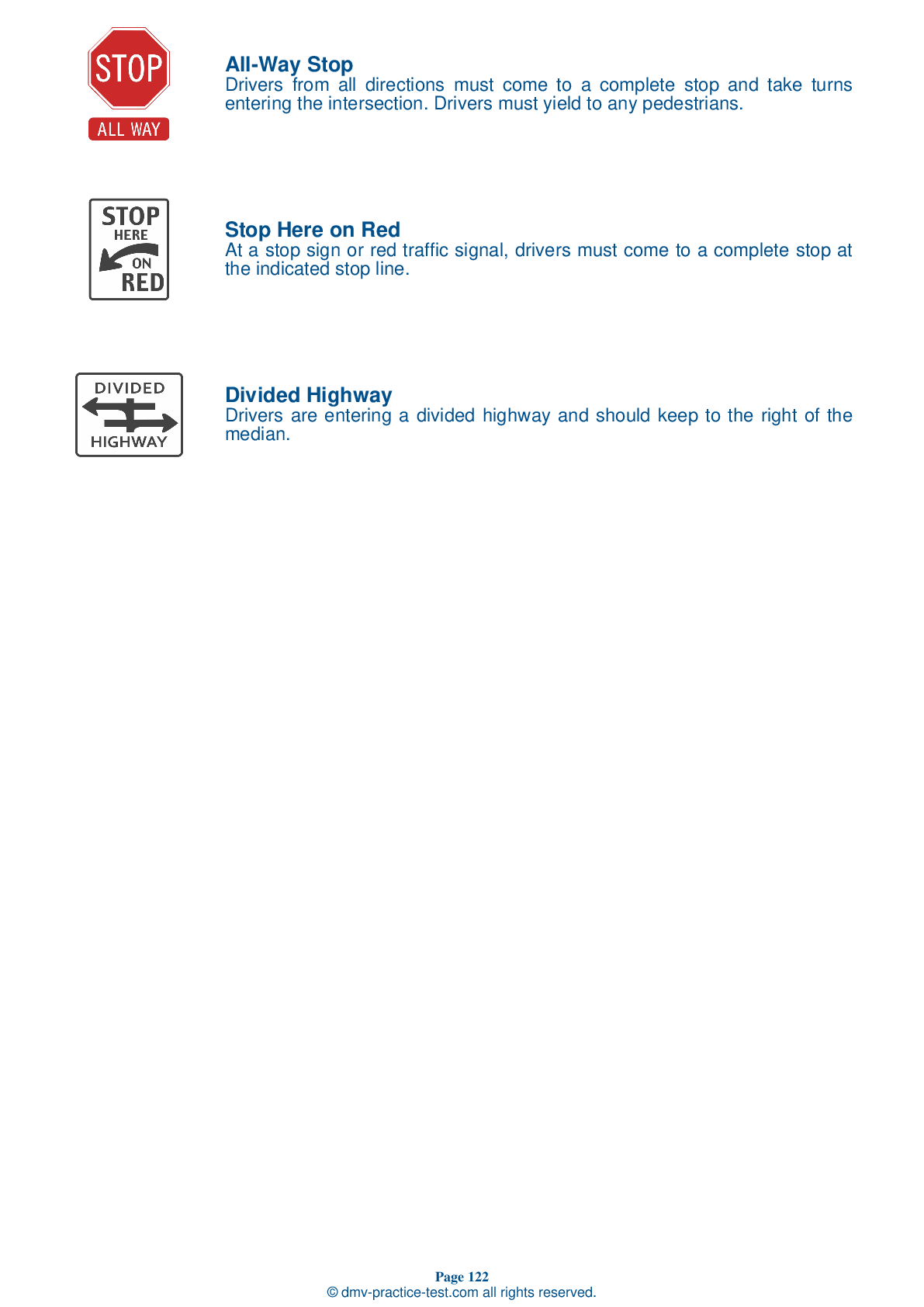HazMat #1
Hazmat Test | District Of Columbia 2026 #1 Page 4 of 5
On our website, we provide FREE practice - CDL hazmat test online! The official exam test consists of several obligatory parts, with all of them checking your knowledge of different blocks of road rules. If you need to obtain a DC CDL hazmat endorsement in 2026, practice as much as possible. Free sample tests published on our website will help you check and improve your knowledge and boost your grades. Please bear in mind that District Of Columbia requirements for issuing a hazmat endorsement for CDL may vary from those established in other states.
30
24
20
19 . If transporting explosives, you may leave your vehicle unattended:
In a safe haven.
When transporting hazardous materials, you may leave your vehicle unattended in a safe haven. A safe haven is a location that has been approved for parking unattended vehicles that are loaded with explosives.
20 . If loading corrosive materials, you should not:
Ask someone to help you.
Containers of corrosive materials should be kept in their correct upright positions. They should not be dropped or rolled.
21 . In addition to reading the manual, the best way to learn about transporting hazardous materials is to:
Ask a police officer.
While the manual contains all of the information needed to pass the written exam for a hazardous materials endorsement, it does not contain all of the information necessary to do the job safely. You can learn more by attending hazardous materials training courses.
22 . When approaching a railroad crossing while transporting chlorine:
You can proceed without stopping if no other vehicles are within sight.
If transporting any amount of chlorine, a driver must always stop at a railroad crossing 15 to 50 feet from the nearest track.
23 . When a driver is not in their vehicle, hazardous materials' shipping papers should be:
Placed on the dashboard.
Shipping papers for hazardous materials should always be easily accessible. When a driver is not in their vehicle, hazardous materials' shipping papers should be left on the driver's seat.
24 . Your engine runs a pump used during the delivery of compressed gas. After delivery, you should turn off the engine ____ unhooking the hoses.
Either before or after
